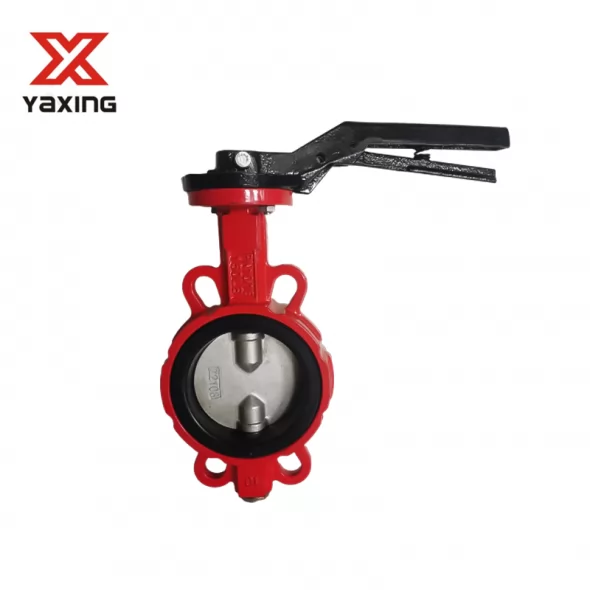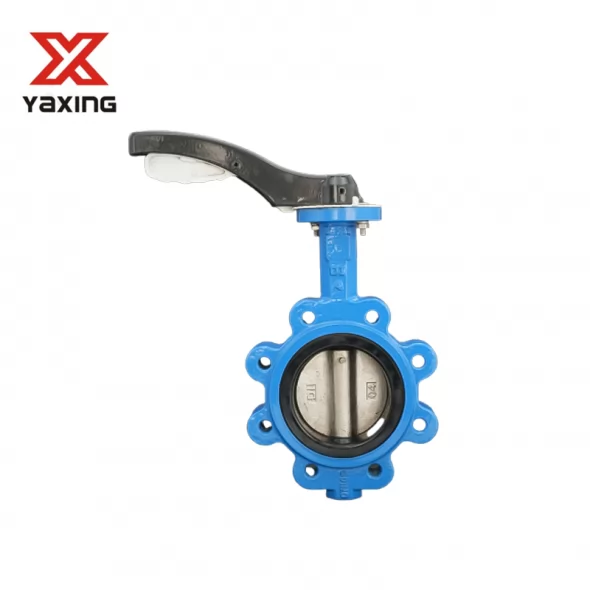+86 186 3170 8948
+86 186 3170 8948
recommend products
Your Guide to Selecting the Right Valve for Industrial Applications
Butterfly valves are essential components in fluid control systems, offering efficient flow regulation for water, gases, and other media. Among the most common types are lug-style and wafer-style butterfly valves. While they share similarities in design, their structural features and applications differ significantly. As a trusted manufacturer of cast iron valves, we break down their differences to help procurement professionals make informed decisions.

Wafer butterfly valves are lightweight valves designed to fit between two pipeline flanges. They rely on bolts that pass through the entire pipeline flange to secure the valve in place. Their compact design eliminates the need for threaded inserts or additional mounting hardware.
A circular disc (mounted on a rotating shaft) controls flow. When the handle or actuator rotates 90 degrees, the disc aligns with the flow (open) or blocks it (closed).
Dependent on flange bolts for structural integrity.
Ideal for systems where space and weight are critical.

Lug-style valves feature threaded inserts (lugs) on both sides of the valve body. These lugs allow the valve to be bolted directly to each flange independently, enabling partial system disassembly without disrupting the entire pipeline.
Similar to wafer valves, lug valves use a rotating disc to regulate flow. However, their threaded lugs provide added stability, making them suitable for higher-pressure applications.
Can be installed in systems requiring frequent maintenance.
Suitable for end-of-line service or dead-end applications.
Factor | Wafer Butterfly Valves | Lug Butterfly Valves |
Material | Typically cast iron, ductile iron, or stainless steel | Same materials, but often reinforced for higher loads |
Temperature Range | -20°C to 150°C (varies by seal material) | -20°C to 200°C (wider range due to robust construction) |
Pressure Range | Up to 150 PSI | Up to 250 PSI |
Application Scenarios | Water treatment, HVAC, low-pressure systems | Industrial pipelines, fire protection, high-pressure systems |
Fluid Compatibility | Water, air, non-corrosive fluids | Corrosive fluids, slurries, high-viscosity media |
Installation | Requires full flange bolting | Threaded lugs allow independent flange mounting |
Cost | Economical (simpler design) | Higher (durable construction, added features) |
Pros: Lightweight, cost-effective, easy to install in tight spaces.
Cons: Not suitable for high-pressure systems; cannot be used for end-of-line service.
Pros: Versatile installation, handles higher pressures, allows system isolation.
Cons: Heavier, more expensive, requires precise alignment during installation.
Consider these factors when selecting a valve type:
System Pressure: Opt for lug valves in high-pressure environments.
Installation & Maintenance: Choose lug valves if partial disassembly is required.
Budget Constraints: Wafer valves are ideal for cost-sensitive projects.
Fluid Type: Lug valves better handle corrosive or abrasive media.
Space Limitations: Wafer valves excel in compact systems.
Both lug and wafer butterfly valves offer unique benefits depending on your operational needs. Wafer valves provide affordability and simplicity for low-pressure applications, while lug valves deliver durability and flexibility for demanding environments. As a cast iron valve manufacturer, we recommend evaluating your system's pressure, maintenance requirements, and fluid characteristics to ensure optimal performance.
[Contact us] for expert guidance tailored to your project's specifications.
Related Information
Differences Between Resilient Seated Gate Valve DIN3352 F4 and DIN3352 F5
Check Valves 101: Types, Uses, and How to Pick the Right One
The Role of Resilient Seated Gate Valves in Wastewater Treatment
Inside a Ball Check Valve: Structure, Materials, and Why It Matters
Wafer Butterfly Valve Installation Guide | Step-by-Step Instructions & Expert Tips
Understanding the Difference Between Lug and Wafer Butterfly Valves
In Which Applications Are Resilient Seated Gate Valves Used?
Related News
+86 186 3170 8948
No.4 Road Botou Industrial Zone, Cangzhou City Hebei Province, China
Get Free Sample
 Privacy Policy
Privacy Policy